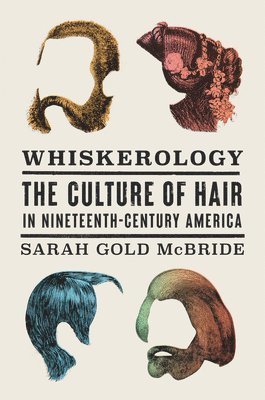Kommande

379:-
A surprising history of human hair in nineteenth-century America, where length, texture, color, and coiffure became powerful indicators of race, gender, and national belonging. Hair is always and everywhere freighted with meaning. In nineteenth-century America, however, hair took on decisive new significance as the young nation wrestled with its identity. During the colonial period, hair was usually seen as bodily discharge, even "excrement." But as Sarah Gold McBride shows, hair gradually came to be understood as an integral part of the body, capable of exposing truths about the individuals from whom it grew-even truths they wanted to hide. As the United States diversified-intensifying divisions over race, class, citizenship status, and region-Americans sought to understand and classify one another through the revelatory power of hair: its color, texture, length, even the shape of a single strand. While hair styling had long offered clues about one's social status, the biological properties of hair itself gradually came to be seen as a scientific tell: a reliable indicator of whether a person was a man or a woman; Black, white, Indigenous, or Asian; Christian or heathen; healthy or diseased. Hair was even thought to illuminate aspects of personality-whether one was courageous, ambitious, or perhaps criminally inclined. Yet if hair was a teller of truths, it was also readily turned to purposes of deception in ways that alarmed some and empowered others. Indeed, hair helped many Americans to fashion statements about political belonging, to engage in racial or gender passing, and to reinvent themselves in new cities. A history inscribed in bangs, curls, and chops, Whiskerology illuminates a period in American history when hair indexed belonging in some ways that may seem strange-but in other ways all too familiar-today.
- Format: Inbunden
- ISBN: 9780674249295
- Språk: Engelska
- Antal sidor: 304
- Utgivningsdatum: 2025-06-03
- Förlag: Harvard University Press

